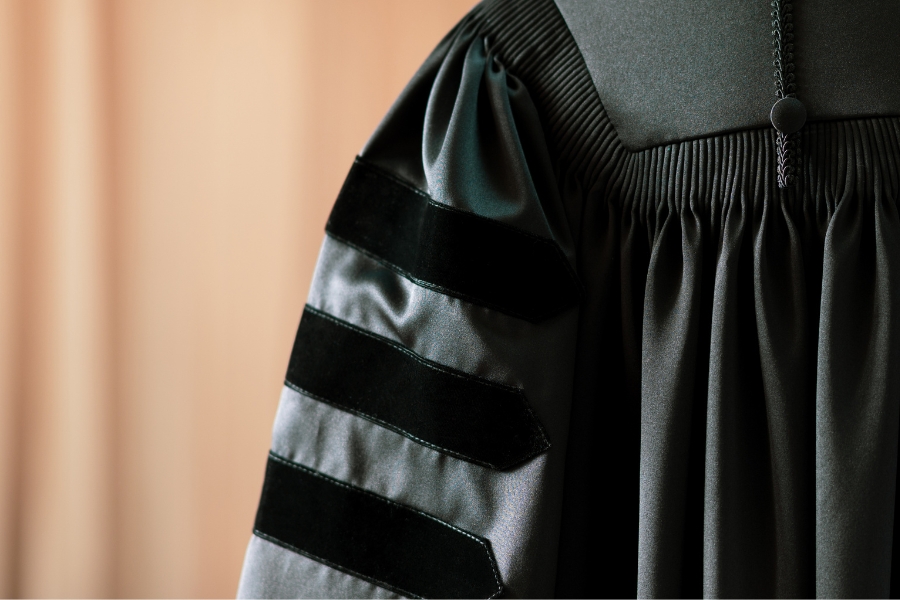If you have friends who post drool-worthy photos of luxury resorts in beautiful, tropical places and you wonder how on Earth they can afford such amazing vacations, there are four main possibilities: 1) They’re rich; 2) They saved up for a long time and splurged; 3) They went into debt to make it happen; 4) They spent far less than you think—perhaps close to nothing—because your friends know how to play the travel hacking game.
If No. 4 intrigues you, buckle up, because I’m about to take you on a mindblowing trip through Travel Hacking Land. But before we embark, I want to make something clear: Everything I’m about to share with you is legitimate, legal and honest. I say that upfront because often people’s initial response when I describe how travel hacking works is, “That sounds sketchy.” They usually respond with 1) This is a scam, or 2) This is unethical. Neither is true. More on that shortly.

Okay, off we go!
Welcome to Travel Hacking Land, where if you learn to play the game well, you get to travel for free.
A few things to keep in mind as we take this tour:
1. Think of travel hacking as a game rather than a “hack.” Like any game, the more strategies you master, the better you get at playing.
2. The game is simple in concept, but complex in practice. Don’t expect to walk away from this article knowing exactly how to book a free trip to Europe. There’s a fairly steep learning curve, but speaking from experience, it’s 100% worth the time to learn it.
3. (Almost) anyone can play. If you have a good credit score, you can play this game. (That being said, people with more spending power will be able to play it faster. No way around that really.)
4. Be ready to unlearn some things. Most of us come into the game with major misconceptions about how credit card points and airline miles work.
5. It truly is as mindblowing as it sounds. Yes, the people who play this game really do travel the world regularly—often in luxury—for free or nearly free. No, it’s not an exaggeration. (I’m not selling anything here, by the way—I love to travel, I love saving money and I love strategy games, so this hobby just hits all my happy buttons.)
Also, I didn’t make any of this up or figure it out on my own. I learned it from Bryce Conway, founder of 10xTravel, a website where anyone can learn all the ins and outs of this game and see how other people are playing it. (10xTravel Insiders is also the largest and most active Facebook group dedicated to this game, with more than 113,000 members, so Conway definitely is the go-to expert in this space.)
As we take our tour through Travel Hacking Land, I’ll share what Conway says about how the game works and what anyone who’s interested in it needs to know.
The travel hacking game is played with three main pieces: credit card points, hotel points and airline miles.
On a basic level, the goal of the travel hacking game is to optimize credit card points, hotel loyalty points and airline miles and make the most of how those award systems work and interact with each other. You have to understand these pieces of the game to strategize using them.
The first thing to understand is that credit card points are the most powerful pieces in the game. Everything else stems from there.
Each credit card grouping (Chase, American Express, Citibank, Capital One, etc.) has its own points-earning system. You earn points by spending with a credit card (i.e., “earn 1% cash back on purchases”) or by signing up for new cards and qualifying for sign-up bonuses (“spend $4000 in the first three months and get 100,000 bonus points”). Most of us most likely have points-earning cards of some sort, because they’re so common.
Generally speaking, the cash value of a credit card point is one cent, so 100,000 points would have a cash value of $1,000. If I have 100,000 Chase points, for instance, I can trade those in for $1,000 cash back.
That’s exactly what I used to do—get cash back for the points I earned on my Chase cards—and I thought it was pretty awesome. Now I kick myself for it because those points are sooooo much more valuable when used in the points/miles game for travel.
Credit card points become more valuable when they are transferred to travel partners.

As I said, the game is complex, and there’s no way to explain it all in one article. But here’s one example of what it means to optimize the points and miles systems.
Recently I wanted to buy a one-way ticket on Southwest airlines. The cash price for the ticket was $88, but I could get the exact same ticket for 4,400 Southwest Rapid Rewards miles.
Southwest is a travel partner with Chase, which means I can transfer my Chase points to Southwest and they count as Rapid Reward miles. 4,400 Chase points would be worth $44 if I got cash back for them, but if I transfer them to Southwest to purchase that $88 ticket, I’ve just doubled the value of those points.
Double the value is pretty good, right? But that’s just scratching the surface. As another example, with 100,000 Chase points, I could get $1,000 cash back or I could transfer those points to Hyatt and get four nights at the Grand Hyatt resort in Kauai—which, on the dates I just looked up in August, would cost $900/night cash. So for $1,000 worth of points, I could get a $3,600 stay at a luxury resort. Almost quadrupled their value.
But keep in mind, I’m not actually even paying that $1,000 out of pocket. These are points I earned for free, just by signing up for and using my credit card (on things I’m spending money on anyway) to earn points.
When people say they’re traveling for free, this is what they mean.
If you want to play the points/miles travel hacking game, you can learn how for free.
I had a vague understanding of airline miles and credit card points before taking Conway’s 10xTravel course. I’d used frequent flyer miles before and my husband and I have used credit cards for everything (paying them off every month—that’s vitally important) to earn points for cash.
I don’t even remember now what made me click on the course, but I’m so glad I did. There are multiple travel hacking websites and courses out there, but I appreciated the way Conway laid the whole thing out and that he was totally upfront about how he makes his money with a free course. (Basically, he asks that course participants use his credit card referral links if/when they start getting into the game, which is beyond fair for the amount of knowledge the course provides.)
Conway started puzzling out the game himself when he was in college, when there were only a handful of online forums and Reddit discussions about how to optimize points and miles. His friends would see him traveling all the time and ask him how he was doing it, so he’d explain it. Eventually, he got tired of having to go through the whole game with new people over and over again at parties, so he wrote it all down in an email that he could just forward to whoever asked.
Finally, a friend told him he should turn it into an ebook. That ebook eventually morphed into the course and the 10xTravel website and a full-fledged win-win business. We win by getting free knowledge about how to game points and miles to travel for practically nothing. He wins by earning credit card affiliate income each time people use his referral links to start playing.
The biggest travel hacking hurdle to get over is our misconceptions about credit cards.

One big key strategy in this game is regularly signing up for new credit cards to take advantage of sign-up bonuses, as that’s the quickest way to accumulate a lot of points. But most people think that’s nuts.
“When I tell people that I generally open 10 or more credit cards a year, almost every single person … their eyes get bigger and they kind of freak out,” says Conway. “And the next question is always, doesn’t that destroy your credit score?”
No, it doesn’t.
“It’s very straightforward how that works, but of course, people have a bad association of credit cards with debt and bad credit,” he says. “So you have to kind of get past that.”
But won’t credit card companies get wind of people doing this and shut it down? Conway says nope.
“They know that this exists. In some ways, they kind of encourage it because most people aren’t able to make points work or are not willing to put in the effort to make points work in a way that is really advantageous to them,” he says. “So it’s kinda like the banks are making a bet like, ‘Hey, we have this cool point system. You probably won’t figure it out. It’s profitable for us anyway.’”
“Credit card companies make a lot of money when people use their product, both on interest charges and fees—kind of the negative side of credit cards—but also just on swipe transaction fees,” says Conway. “People forget that credit card companies make a large portion of their money on people who don’t even ever pay interest or have credit card debt.”
Credit cards are profitable for banks, so they incentivize people opening them. And banks compete to get you to open their cards, so all we’re doing here is making the most of that competition and the incentives that come with it. No one is getting swindled. You have to spend on the cards to earn the points—even the sign-up bonuses—so banks are still making their money.
The key is to use your credit card for every transaction possible, pay off the balance each month before any interest posts and keep getting new cards for the sign-up bonuses.
Here are some examples of people who have learned how to play the travel hacking game and won big.

One of the things you start seeing after you take the 10xTravel course and join the group on Facebook is people sharing the amazing trips they’ve taken for free or close to free. Some of those stories get posted on the 10xTravel site, too.
For example, one couple took a two-week, five-country, $17,000 trip to Europe for just over $1,500 out of pocket. Another family detailed how they saved $14,000 in travel costs on trips to Puerto Rico, Europe, Costa Rica and Canada—not to mention getting a ton of free travel domestically—over a two-year period.
Some people in the Facebook group have shared trips where they’ve gotten redemption values of 10 or 20 cents per credit card point or more (essentially turning what would be $1,000 cashback into $10,000 or $20,000 in travel value). Those are exceptionally amazing, but it’s not unusual at all to see 3x, 4x or 5x point values being redeemed by travelers in the group.
Often the only cash people have to shell out on their trips is for food and a modicum of taxes on flights, which don’t get covered by points. At all-inclusive resorts, food is covered, so all they pay for are any extra activities.
And we’re not talking cheap places or terrible traveling conditions. You know those over-the-water bungalows you see in the Maldives? I’ve seen people fly first-class there and stay in those places, all on points and miles. It’s bonkers what people can do if they play this game well.
Why don’t more people play the travel hacking game if it’s really so great?
Again, the game is simple in concept but complex in practice. There’s a lot to learn and a lot to unlearn at first, and how the various points and miles systems intertwine and interact can make your brain hurt until it all starts to click. But a lot of what stops people from even starting to learn is simply not believing that it is what it is.
“I think it doesn’t really make sense to most rational minds,” Conway admits. “Because things don’t just kind of come for free in life. There’s always gonna be some sort of catch down the road. So when you can show them how easy it is to book a meaningful amount of travel—and good travel—using simple tactics with points and miles, it seems too unbelievable.”
This is especially true with business or first-class airline travel. The redemption values for points on those seats can be simply astounding.
“People assume that I’m gonna do a bunch of work just to be able to get a three-stop red-eye flight to Vegas—is that even worth it? And that’s just not the case,” says Conway. “My wife and I have flown first-class all over the world and can do so pretty much whenever and wherever we want, thanks to this.”
Travel hacking (a term Conway bristles at because it makes the whole thing sound sketchy) is a long game—and more chess than checkers for sure—but for those who wish they could afford to travel more, it’s definitely a game worth learning how to play.
Thanks for coming along on the tour of Travel Hacking Land! And hey, if you see your friends sunning themselves in Fiji or exploring Machu Picchu or galavanting around Europe, don’t assume they have gobs of excess wealth. They may have just learned to game the points and miles systems in a way that lets them travel for ridiculously little money.
This article originally appeared two years ago.

































